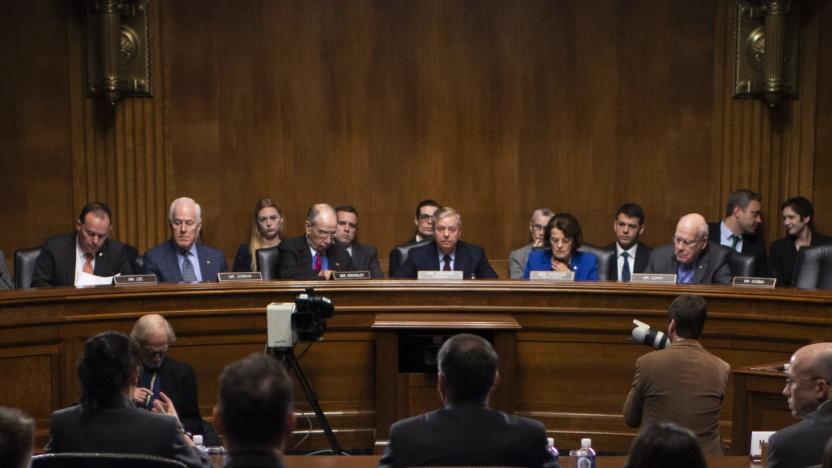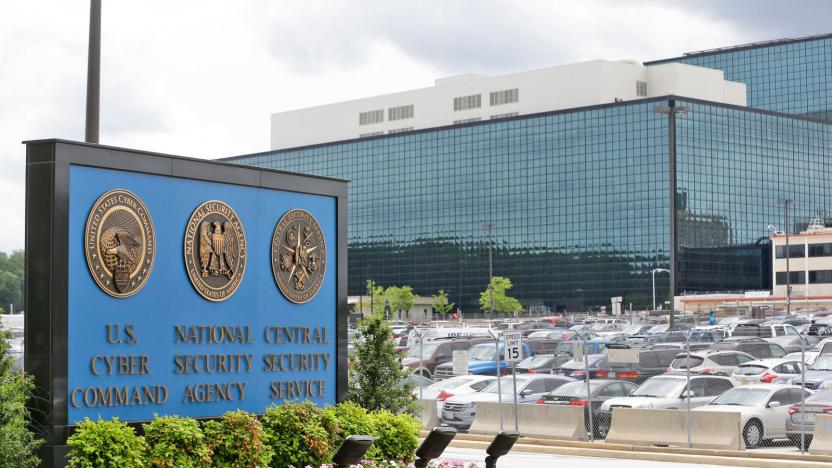USA Freedom Act
Latest

NYT: $100 million US phone surveillance program produced two unique leads
After 2015, the USA Freedom Act replaced NSA mass surveillance of American's call metadata that had been enacted under the Patriot Act and Section 215. While it didn't go so far as to completely reform the system as groups like the EFF and ACLU hoped, it changed things by having phone companies collect the data, under limits of how long it could be stored, with queries performed by agencies with a judge's permission. Even the new rules have had problems, with phone companies storing more data than was legally allowed causing the NSA to wipe all data collected in 2018. Also, even more limited queries could end up touching millions of records. Now the New York Times reports on a just-declassified study by the Privacy and Civil Liberties Oversight Board from last year that looked into the program and found that it had only ever generated two unique leads during the time it was operating. That's out of 15 reports total, but 13 had information the FBI was able to get through other methods, At a cost of over $100 million to operate the setup, this almost complete lack of production reveals more about why the NSA had stopped using it. Sections of the Patriot Act were set to expire in 2019, but despite reported recommendations by the NSA to shut things down, they were extended as part of a funding bill. Now they're up for review again by March 15th, and despite proposed bipartisan legislation intended to replace the program, AG William Barr is again pushing for an extension.

NSA improperly collected even more call records than we thought
According to documents obtained by the ACLU, the NSA's problem of collecting unauthorized American phone call data is worse than we first thought. Last May, the NSA deleted more than 600 million call records that it collected in error. The agency claimed that telecoms shared information on calls unrelated to NSA targets, and in doing so, violated federal laws. To be safe, the NSA dumped a massive amount of call records and said it had gotten to the "root cause" of the problem. But a report released by the ACLU, states that just a few months later, the NSA once again obtained information about Americans' phone calls that it was not authorized to collect under Section 215 of the Patriot Act.

The NSA says it's time to drop its massive phone-surveillance program
The National Security Agency (NSA) has formally recommended that the White House drop the phone surveillance program that collects information about millions of US phone calls and text messages. The Wall Street Journal reports that people familiar with the matter say the logistical and legal burdens of maintaining the program outweigh any intelligence benefits it brings.

The NSA's mass surveillance program for phone call metadata is still going
Despite last night's vote by the House of Representatives and various plans for reform, the NSA is still peeking into places many think it shouldn't. The Office of the Director of National Intelligence just revealed that yesterday, the program that scoops up bulk metadata on phone calls has been renewed again. In February, the Foreign Intelligence Surveillance Court approved some new limits on the program forcing the NSA to request court approval to pull records, and limiting it to info for people within two degrees of a target. Those restrictions are still in place, and this latest 90-day renewal extends the program until September 12th. For now, the changes proposed by President Obama are currently tied to the "gutted" USA Freedom Act that's being considered by the Senate.

'Gutted' NSA reform bill passes the House, but sheds supporters
It's not exactly what privacy advocates and most tech companies wanted, but it's something. The USA Freedom Act has passed through the House of Representatives, but it didn't escape unscathed. While many of the main components survived, other elements were lost to amendments or dramatically altered. One of the most controversial changes from the bill that passed out of the Judiciary Committee was a broader definition of a "specific selection term," which is used by the NSA to define their data requests. The original language allowed the government to ask for records relating to a "person, entity or account." What was passed by a vote of 303 to 12 on the floor of the capital added "address, or device" to that list, leaving the scope for data request quite broad. Obviously the original version of the bill had a much more narrow definition, which has led many privacy advocates like the Electronic Frontier Foundation (EFF) and tech companies like Google to drop support for the bill as they feel it leaves too much room for abuse.

Bill to end NSA's mass surveillance moves closer to a vote
The House Judiciary Committee is getting ready to begin mark up procedures on the USA Freedom Act, a bill that would effectively end the NSA's mass surveillance program as it exists today. Jim Sensenbrenner, a Wisconsin Republican, is the man behind the bill and he's got tons of backing from the tech and privacy communities. That support probably has something to do with the alternative bill currently with the House Intelligence Committee which many agree doesn't do enough to rein in the NSA. In an effort to get it through committee with its teeth intact a slew of nonprofits and major companies, including the ACLU, the Electronic Frontier Foundation, DropBox, Mozilla and Reddit have signed a letter to its members stating their support. Plus there are 140 co-sponsors in the House and a sister bill working its way through the Senate with the support of Patrick Leahy, the Democratic chair of the Senate Judiciary Committee.



